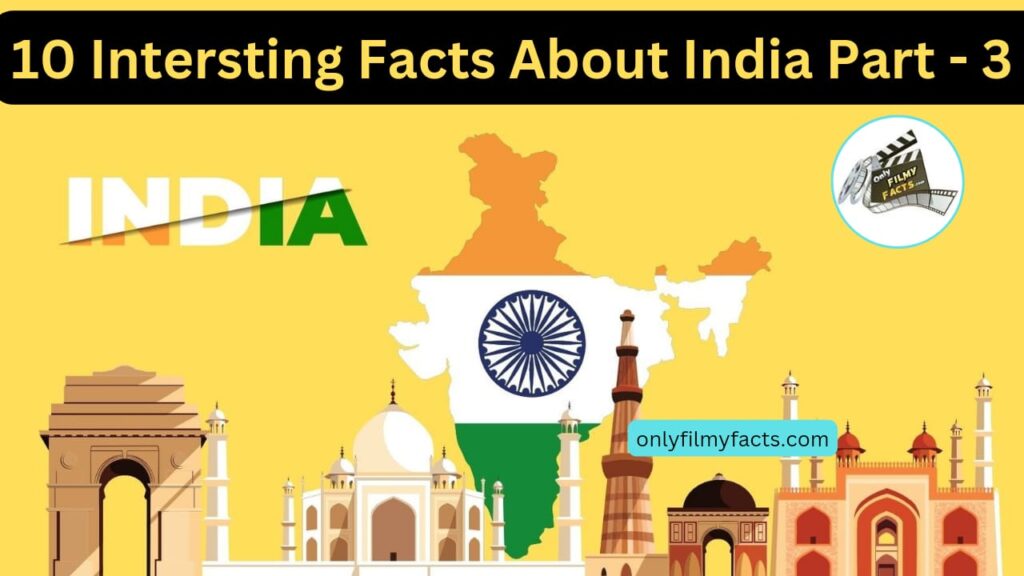It’s understandable why so many travellers consider India to be on their bucket list! Mumbai and Varanasi offer a diverse landscape, vibrant festivals, and fiery cuisine that are incentive enough to pack your bags and travel there.
Whether you’ve never been to IND or you’re just captivated by it, these 10 fascinating facts about the nation may surprise you.
1. The colour of the Taj Mahal is gradually changing
Perhaps the most iconic landmark in India, the majestic white walls of the Taj Mahal are something almost every traveler dreams of seeing.
However, the white marble walls are gradually turning yellow due to airborne pollutants and pollution.
I highly recommend visiting the Taj Mahal on this private day trip from Delhi (which also includes the Agra Fort and Baby Taj).
2. The Taj Mahal was disguised as a bamboo stockpile during World War II.
The Taj Mahal remains one of the nation’s most revered and significant landmarks, despite its colour shifting.
During World War II, bamboo scaffolding was used to cover the entire palace, keeping bomber planes flying overhead unaware of the actual structure.
The Taj Mahal was never hit during the war, so it appeared that the trick worked.
3. Coke and Pepsi are occasionally used as insecticides in India
Farmers in Chattisgarh state, India, one of the world’s rice-producing regions, started sprinkling Coke and Pepsi products on their fields because they were less expensive and appeared to be just as effective as conventional pesticides.
Upon closer examination of this technique, it is believed that the sweet syrups draw ants to the field, where they consume the insect eggs and larvae that frequently ruin crops.
4. One of the last “untouched” locations on Earth is North Sentinel Island
The Sentinelese people live on North Sentinel Island, and the Indian government has made it illegal for anyone to travel within three miles of the island.
When anthropologist Madhumala Chattophadhyay visited the Sentinelese in 1991, she had a number of peaceful interactions with them; however, in the years that followed, the people made it very evident sometimes violently that they didn’t want to be disturbed.
It is currently regarded as one of the final locations unspoiled by the outside world.
5. Space allows one to view the Kumbh Mela
The Kumbh Mela is the biggest gathering on Earth as well as a significant festival and pilgrimage site. Although there is an annual celebration, there are larger-scale festivals held every four and twelve years.
The festival is drawing so many attendees that photos taken from space by satellite can be seen with the crowd.
6. Among the world’s lowest divorce rates is India.
According to statistics, the divorce rate in India is about 1 out of every 100 marriages, making it much lower than most countries.
Cultural traditions and the continued practice of arranged marriages in India could be contributing factors to this.
7. Frogs Are Married Off
Speaking of marriage, frogs are married in India! Well, at least in Varanasi.
In order to appease the rain gods, Varanasi adheres to its ancient customs and beliefs, which include marrying frogs to delay the arrival of rain.
8. The Hindu calendar has six seasons
India has six distinct seasons: spring, summer, monsoon, autumn, prewinter, and winter. This is in contrast to the normal four seasons that most other countries observe.
9. Varanasi is the most ancient surviving city in the world
India is not an exception to the rule that some nations claim to have the oldest continuously inhabited city in the world.
One of the oldest cities still in existence in the world is thought to be Varanasi, the holy city also called Banaras or Kashi. Indeed, it is thought that Lord Shiva and Goddess Parvati once called this location home.
Varanasi “looks twice as old as all of them put together,” according to Mark Twain, and is older than history, tradition, and even legend.
The link between this city and eternity doesn’t end here because it’s thought that the individual who takes their last breath here truly finds salvation.
For this reason, a great number of pious Hindus travel to Varanasi to spend their final days on the planet. Simultaneously, a large number of other followers visit the city year-round in order to partake in its divinity.
I heartily suggest this private half-day tour if this is your first time in the city to fully immerse yourself in Varanasi’s history, culture, and (tourist-friendly) street food!
Varanasi is a beautiful city as well. Every moment and every corner of this place, from its architecture to its people to its rituals, offers a picture-worthy scene. Use this photo tour to explore the city and make the most of this rich experience.
10. The Origin of Ayurveda and Yoga
Varanasi is renowned not only as the holiest city in India but also as the cradle of Ayurveda and Yoga, two age-old medical traditions.

